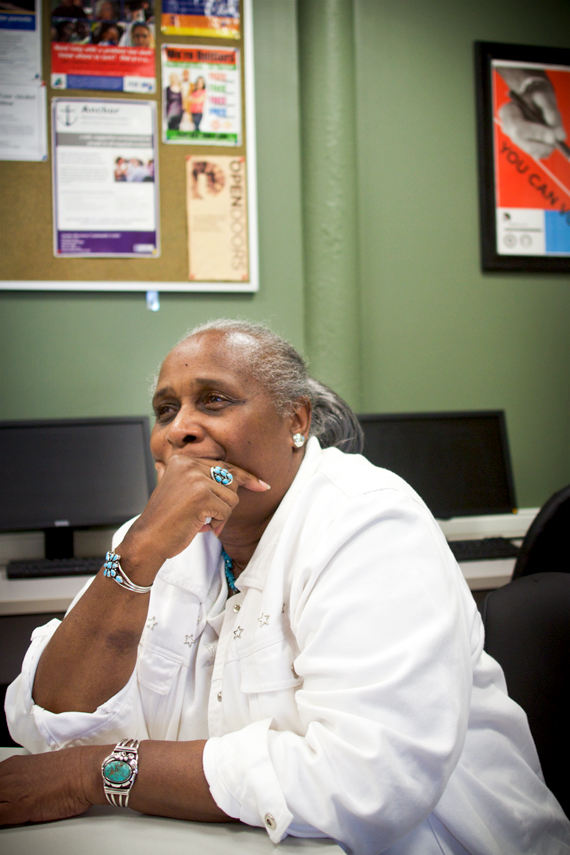
Grace Brown was a member of Rhode Island's movement to restore voting rights to parolees and probationers. Photo by Maryann Batlle/News21
Grace Brown, a lifetime Rhode Island resident, got involved in the state’s successful grassroots movement to restore voting rights to parolees and probationers, she said, because of her youngest son.
“My son had been in and out of jail, and I was angry as heck with him,” Brown said. “But I had no idea what he in his spirit was going through.”
Rhode Island voters approved a constitutional amendment in 2006 that gave Brown’s son and others like him the right to vote. Now, just residents who are incarcerated are disenfranchised.
“You have to be in charge of your own future. And the more you leave in somebody else’s hands the more you cannot feel responsible, the more you cannot feel proud of the movements, of the decisions that you’ve made,” Brown said.
Brown attended an informational seminar that she said showed her how other felons – men and women – from minority communities were affected by losing their voting rights.
Brown and a friend, whose son also was behind bars, felt after the seminar that they “had to do something because the playing field was definitely not even, and we wanted to do something to kind of knock some of those hills down,” she said.
By Maryann Batlle, News21
